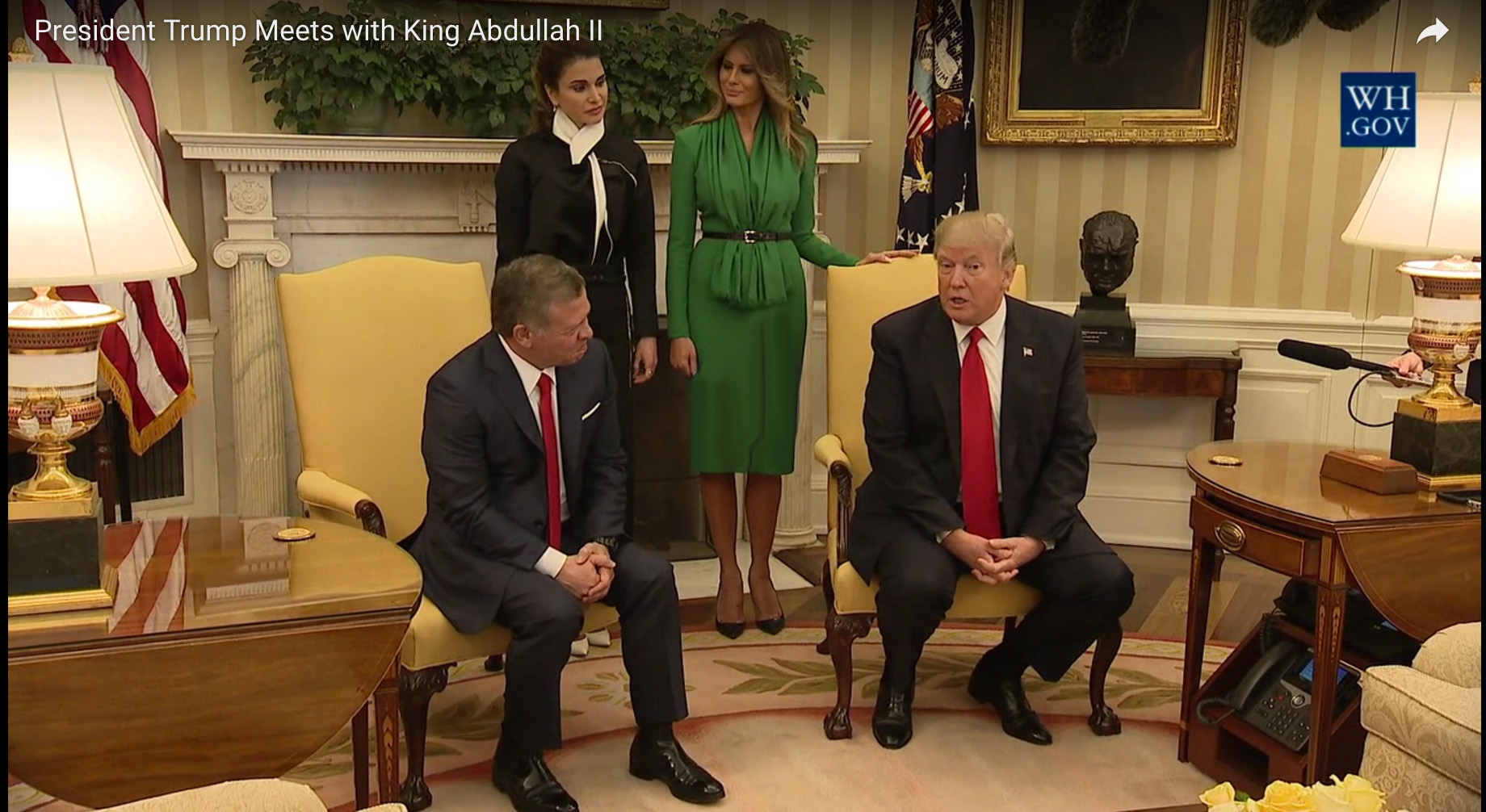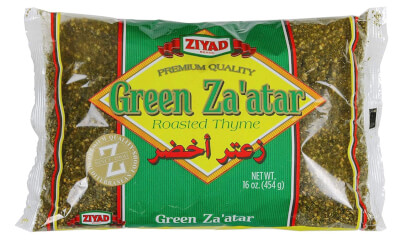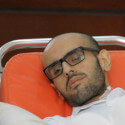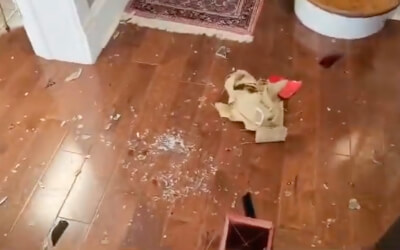Trump, Jordan King focus on Palestinian State
President Donald Trump and Jordan’s King Abdullah II met this week, their second meeting at the White House since Trump’s election, and discussed ways to achieve peace through the establishment of a State for Palestinians. Trump and King Abdullah II also discussed regional issues including confronting Syria’s butcher Bashar al-Assad who used chemical weapons recently to murder scores of civilians in Syria.
By Ray Hanania
During their meeting, King Abdullah II and President Trump discussed Palestine, and also the chemical attack by Syria’s tyrant Bashar al-Assad. Trump also said that he was taking the responsibility to confront Assad and also reminded journalists that he was also going to confront the terrorist leader of North Korea, Kim Jong-Un.
Here’s the transcript of the remarks by both leaders following their lengthy meetings on Wednesday April 5, 2017 at the White House, made in the Rose Garden afterwards. Click here to view the video of the meeting:
Remarks by President Trump and His Majesty King Abdullah II of Jordan in Joint Press Conference
April 5, 2017, White House Rose Garden Press Conference
PRESIDENT TRUMP: Thank you very much. Your Majesty, thank you for being with us today. Very much appreciate it. This is our second meeting since my inauguration, but our first at the White House. A very special place, I can tell you that. I’ve gotten to know it well. Long hours. Very special.
It’s really an honor to welcome you here today. But before we begin, let me say a few words about recent events.
Yesterday, a chemical attack — a chemical attack that was so horrific, in Syria, against innocent people, including women, small children, and even beautiful little babies. Their deaths was an affront to humanity. These heinous actions by the Assad regime cannot be tolerate.
The United States stands with our allies across the globe to condemn this horrific attack and all other horrific attacks, for that matter.

Your Majesty, Jordanians are known for their legendary hospitality, and we will do our very best to be equally gracious hosts. They’re also known, however — I have to say this — for their fighting ability. And you are a great warrior, and we appreciate it. Thank you.
The historical ties and close friendship between our two countries dates back three-quarters of a century. In that time, the Middle East has faced many periods of crisis and unrest, perhaps never like it is today, however. Through them all, America has looked to Jordan as a valued partner, an advocate for the values of civilization, and a source of stability and hope.
I am deeply committed to preserving our strong relationship — which I will — and to strengthening America’s longstanding support for Jordan. And you do have tremendous support within our country, I can tell you that.
As we know, the Middle East — and the entire world — is faced with one of its gravest threats in many, many years. Since the earliest days of the campaign against ISIS, Jordan has been a staunch ally and partner, and we thank you for that. Jordanian servicemembers have made tremendous sacrifices in this battle against the enemies of civilization, and I want to thank all of them for their, really, just incredible courage. So many have been lost, and we pay homage. So many.
In King Abdullah, America is blessed with a thoughtful and determined partner. He is a man who has spent years commanding his country’s special forces. He really knows what being a soldier is, that I can tell you. And he knows how to fight. The King has been a leader in calling for a plan to defeat ISIS once and for all. And I’m with you on that. We’re both leaders on that, believe me. That’s what we speak about today, and that is what we are going to do. And it will be a shorter fight than a lot of people are thinking about, believe me. We’ve made tremendous strides as we discussed.
As you know, we had a very, very fine delegation come over from Egypt and also from Iraq, and they said more has been done in the last six weeks than has been done in years with the previous administration. And believe me, we’re going to keep it that way.
We will destroy ISIS and we will protect civilization. We have no choice — we will protect civilization. King Abdullah and I also discussed measures to combat the evil ideology that inspires ISIS and plagues our planet. In addition, we also acknowledge the vital role that Jordan has played in hosting refugees from the conflict in Syria. We have just announced that the United States will contribute additional funds to Jordan for humanitarian assistance. This aid will help countries like Jordan host refugees until it is safe for them to return home. The refugees want to return home. I know that from so many other instances. They want to return back to their home. And that’s a goal of any responsible refugee policy.
Finally, we discussed to advance the cause of peace in the Middle East, including peace between the Israelis and Palestinians. And I’m working very, very hard on trying to finally create peace between the Palestinians and Israel, and I think we’ll be successful. I hope to be successful, I can tell you that.
The King has been a really tireless advocate for a solution, and he’s going to help me with that and help me at the highest level. And we will be consulting with him closely in the days ahead.
King Abdullah, I want to take this opportunity to thank you for your partnership. Working together, the United States and Jordan can help bring peace and stability to the Middle East and, in fact, the entire world. And we will do that.
Thank you very, very much for being with us. (Applause.)
KING ABDULLAH: Thank you. Mr. President, thank you for such a kind and warm welcome to the White House. I fondly remember the meetings we’ve had many years ago and, more recently, several months ago. You’ve always been a generous host and have always looked after us. We are very delighted with the way the discussions have gone so far, and we’re delighted to be here in such a wonderful setting on such a beautiful day, which I think is a tremendous mark of how we are going to move into the future.
We’ve had a very good round of talks today, and I’m looking forward to continuing these discussions later on in our meetings after the press conference. What I do want to say is how much we deeply appreciate the close relations we have with the United States, with you, Mr. President, and with the American people. This is a strategic partnership that we keep very close to our hearts, and it is a partnership on so many levels that we will continue, I think, with the frank discussions that we had today to improve on as we face the challenges of the future. And I am very delighted for your vision, your holistic approach to all the challenges in our region, and to the dedication of your team in being able to translate your policies into action successfully, hopefully, as we move forward.
The challenges we face today are many and are not exclusive to my region, as I’ve just mentioned. They are global, and particularly the threats to global security. Terrorism has no borders, no nationality, no religion, and, therefore, joint action with a holistic approach, as I had just mentioned, Mr. President, is crucial. I am very delighted that you have the vision to be able to move in that direction, and I think that the world will be in a very good place as we move with all these challenges ahead.
No doubt, with all the challenges that we face in the world, the role of the U.S. is key to all the issues that we have around the world, but it’s not just the fact that we should expect the United States to do all the heavy lifting. The heavy lifting has to be done by all of us in the international community to support the United States in being able to translate that vision into the right direction. So there’s a lot of responsibility for all of us in the international community to support the President, the administration, and the American people to bring brighter days to all of us.
We are very encouraged with the President’s determination to support Arab and Muslim states in their fight against terrorism. But it is not only the fight of terrorism inside of our societies, but we, as Arab-Muslim states standing behind the international community in being able to defeat this international scourge.
In Syria, we need a political solution that ends the conflict in the country and preserve its unity and territorial integrity.
As the President mentioned, the issue we discussed was the Israeli-Palestinian conflict, which is essentially the core conflict in our region. And the President’s early engagement as beginning in bringing the Palestinians and Israelis together has been a very encouraging sign for all of us. And I think, sir, it was that initiative that allowed us at the Arab Summit last week to extend through the Arab Peace Initiative the message of peace to Israel, which we all hopefully will work together to make that come about.
All Arab countries — we launched the Arab Peace Initiative, as I said, last week. It offers a historic reconciliation between Israel and the Palestinians, as well as all member states of the Arab League. It is the most comprehensive framework for lasting peace and it ensures statehood for the Palestinians, but also security, acceptance and normal ties for Israel with all Arab countries and hopefully all Islamic countries.
So we appreciate your commitment in all these issues where others have failed. You will find a strong ally in Jordan in supporting you in all your policies. And if I may just say, as you have, on Syria and the gas attack — unfortunately, as you and I both agree, this is another testament to the failure of the international diplomacy to find the solutions to this crisis. But I believe under your leadership we will be able to unravel this very complicated situation.
This has been ongoing for seven years now, has descended into proxy wars from different parties with dubious agendas. But at the end of the day, as you pointed out, Mr. President, it is the civilians — women and children — that are paying the heaviest price. This is happening on our watch, on our conscience, as well as the global community. And I know the passion and the emotion that the President has expressed and how this should not be tolerated whatsoever. And this threshold of inhumanity and savagery that are being crossed every day is something that I know the President will not allow to happen, wherever it may be. And I fully support and endorse the President in this issue.
So I want to thank you, sir, because you have the outlook of looking not just at the Syrian challenges but that of Iraq, Israel, Palestine, Libya, and everything that is in our region. So I think your message to all of us is a message of hope, and that’s what I take away from this conference.
PRESIDENT TRUMP: Thank you very much.
KING ABDULLAH: And I thank you for all that you have done so far and all that you will do, sir. (Applause.)
PRESIDENT TRUMP: We’ll take a few questions. Julie Pace.
Q Thank you, sir. I have questions on Syria for both leaders. But if I could start with you, Mr. President. You’ve condemned the chemical attacks in Syria, but you also appeared in your statement yesterday to pin some of the blame on the Obama administration. You are the President now. Do you feel like you bear responsibility for responding to the chemical attack? And does the chemical attack cross a red line for you?
PRESIDENT TRUMP: Well, I think the Obama administration had a great opportunity to solve this crisis a long time ago when he said the red line in the sand. And when he didn’t cross that line after making the threat, I think that set us back a long ways, not only in Syria, but in many other parts of the world, because it was a blank threat. I think it was something that was not one of our better days as a country.
So I do feel that, Julie. I feel it very strongly.
Q So you feel like you now have the responsibility to respond to the chemical attack?
PRESIDENT TRUMP: I now have responsibility, and I will have that responsibility and carry it very proudly, I will tell you that. It is now my responsibility. It was a great opportunity missed. As you know, I’ll be meeting with the President of China very soon, in Florida, and that’s another responsibility we have — and that’s called the country of North Korea. We have a big problem. We have somebody that is not doing the right thing. And that’s going to be my responsibility. But I’ll tell you, that responsibility could have been made a lot easier if it was handled years ago.
Q Before I move on to the King, could I just quickly ask you if the chemical attack crosses a red line for you?
PRESIDENT TRUMP: It crossed a lot of lines for me. When you kill innocent children, innocent babies — babies, little babies — with a chemical gas that is so lethal — people were shocked to hear what gas it was — that crosses many, many lines, beyond a red line. Many, many lines.
Thank you very much.
Q And, Your Majesty, if I could ask about refugees. Your country has really borne the brunt of the refugee crisis in Syria. The President has signed travel bans that would block Syrians from coming to the U.S. If that goes into effect, what would the impact on your country and across the region be?
KING ABDULLAH: Well, I think as the President pointed out, most, if not all, Syrian refugees actually want to go back to Syria. And what we’re working with the United States and the international community is to be able to stabilize the refugees in our country, give them the tools so that, as we’re working with the solutions in Syria, we have the ability to be able to send them back as a positive influence into their economies.
And again, the President and the Europeans are being very forward-leaning in being able look after our host community — tremendous burden on our country, but again, tremendous appreciation to the United States and the Western countries for being able to help us deliver that.
Q Your Majesty, how does the outcome of the recent Arab Summit help the U.S. in its policy to advance Palestinian-Israeli negotiations?
KING ABDULLAH: Well, as I said, our peace initiative came out with a resounding resolution to offer peace to the Israelis, to make them feel that they’re accepted into the neighborhood, and to be able to support the President as he brings both parties together.
And again, I have to remind people that very early on there was an early engagement by the President and his team to the Israelis and the Palestinians to be able to see what he can do to bring them together. It is the core conflict for a lot of us in the region. The President knows this. He has his instincts in the right place. And working with his team, our job, as I said, is to do the heavy lifting. The Arabs are prepared to do whatever they can to bring Israelis and Palestinians together under the leadership of the President.
PRESIDENT TRUMP: Thank you. John Yang (ph).
Q Thank you, Mr. President. I’d like to follow up on Julie’s question and press you a little more on Syria. How will you distinguish your policy and your actions on Syria from the inaction that you criticized of the previous administration? You say it’s now your responsibility. What should we see or what should we look for that will be different?
And, Your Majesty, I’d like to ask you, what gives you — this is now your second meeting with the President — what gives you the optimism that Mr. Trump will succeed in the Israeli-Palestinian conflict where so many others have failed before him to be a broker for peace?
PRESIDENT TRUMP: I like to think of myself as a very flexible person. I don’t have to have one specific way, and if the world changes, I go the same way, I don’t change. Well, I do change and I am flexible, and I’m proud of that flexibility. And I will tell you, that attack on children yesterday had a big impact on me — big impact. That was a horrible, horrible thing. And I’ve been watching it and seeing it, and it doesn’t get any worse than that.
And I have that flexibility, and it’s very, very possible — and I will tell you, it’s already happened that my attitude toward Syria and Assad has changed very much. And if you look back over the last few weeks, there were other attacks using gas. You’re now talking about a whole different level.
And so, as you know, I would love to have never been in the Middle East. I would love to have never seen that whole big situation start. But once it started, we got out the wrong way, and ISIS formed in the vacuum, and lots of bad things happened. I will tell you, what happened yesterday is unacceptable to me.
Q Can I follow up, sir? Last year, you seemed to be reluctant to get involved — or to intervene in Syria directly. Is that one thing that’s changed after yesterday?
PRESIDENT TRUMP: Well, one of the things I think you’ve noticed about me is, militarily, I don’t like to say where I’m going and what I doing. And I watched past administrations say, we will attack at such and such a day at such and such an hour. And you, being a warrior — you would say, why are they saying that? And I’m sure you sat back in Jordan, and you said, why are they saying that?
I watched Mosul, where the past administration was saying, we will be attacking in four months. And I said, why are they doing that? Then a month goes by, and they say, we will be attacking in three months, and then two months, and then we will be attacking next week. And I’m saying, why are they doing that? And as you know, Mosul turned out to be a much harder fight than anyone thought, and a lot of people have been lost in that fight.
I’m not saying I’m doing anything one way or the other, but I’m certainly not going to be telling you, as much as I respect you, John. Thank you.
KING ABDULLAH: Sir, I think, on behalf of the President, what I saw was an early engagement by the President and his team, with all of us in the region, about the challenges between the Israelis and Palestinians. I had the honor of seeing the President and his team again in January where this was discussed. The President understands the nuances and the challenges. I think he has the courage and the dedication to be able to do this. Like I said before, all of us have a responsibility to help the President push us over the finish line.
And so, his team had been in the region, they’ve been talking to all the partners, and it is our job to facilitate the atmospherics between Israelis and Palestinians to move together, and give the support to the President to be able to smooth the edges over between Israelis and Palestinians to achieve this. And the President understands that if we don’t solve this problem, how are we going to win the global fight against terrorism, which is his number-one priority? So this is a core issue that he understands, and I think he has the commitment and he has my full support for this, as he does from many, many countries in our region.
PRESIDENT TRUMP: And I have to just say that the world is a mess. I inherited a mess. Whether it’s the Middle East, whether it’s North Korea, whether it’s so many other things, whether it’s in our country — horrible trade deals — I inherited a mess. We’re going to fix it. We’re going to fix it.
Okay.
Q Thank you, Your Majesty. You touch upon the subject now, but if I ask you to look forward, how do you see the future of fighting terrorism post-Raqqa and Mosul, especially the role that Jordan will play in the eastern part of Iraq? And do you believe the real battle will start then?
And if I may, Mr. President, you know very well that the Iranian militias and Hezbollah has been propping the Syrian regime for a while — over a few years now. Will you go after them? What message will you give them today? And will you work with the Russians to ground the Syrian air force and to establish safe zones? Thank you.
KING ABDULLAH: Well, the first part is that we are seeing, very recently, tremendous gains on the ground in Raqqa and Mosul. Again, I think, as the President alluded to, it’s very difficult to put timelines on this issue because the battle space is always very fluid. But I think that the war is being won on the ground.
Having said that, terrorists are on the move. They’ll be on the move inside of Iraq and inside of Syria, so that we have to make sure that we adapt our plans accordingly. And they move beyond borders, beyond our region and elsewhere. So as we and the administration have discussed, it’s this holistic approach: How do we fight them wherever they are? And I think that is the understanding.
Terrorists have no respect for borders and religions and people. So it’s the seriousness of how we do this holistic approach that I’ve mentioned several times. And what I am really delighted is that the understanding by the President and the administration in how to deal with this globally.
And I think you’re seeing a move in the right direction because the policy now is being charted out, and my discussions with the Defense Secretary and the Foreign Secretary allows us to be then able to decide how we adapt ourselves in the region to be able to come in line with international diplomacy.
PRESIDENT TRUMP: The Iran deal made by the previous administration is one of the worst deals I have ever witnessed — and I’ve witnessed some beauties. It’s one of the worst deals I’ve ever witnessed. It should never have been made. It was totally one-sided against the United States, and, frankly, against much of the Middle East.
I will do whatever I have to do. They have a deal. It was, some people say, not done properly even in the form of its finalization. There was no vote from Congress. There was no real ratification. But I will do what I have to do with respect to the Iran deal. As far as ISIS is concerned, the United States will work with whoever it’s appropriate to work with to totally eradicate ISIS and other terrorists. And, by the way, ISIS is one group, but others have formed. Frankly, they’re all over the place. We will do what we have to do to eradicate terrorism.
Q But, sir, I’m talking about the Iranian militias in Syria supporting the Syrian regime separate of the nuclear deal. What message do you have for them today?
PRESIDENT TRUMP: You will see. They will have a message. You will see what the message will be. Okay? Thank you.
Thank you all very much. Thank you. Thank you.
END
1:35 P.M. EDT


- Israelisnipers shooting and killing hospital workers in Gaza - December 11, 2023
- CAIR Condemns Israeli Executions of Wounded, Unarmed Palestinian in West Bank - December 11, 2023
- Arab and Muslim American voters face a “simple choice” between Biden’s inhumanity and Trump’s edgy politics - December 9, 2023






















